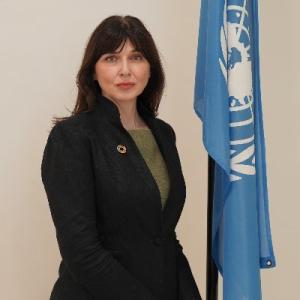It is my great pleasure to welcome you all to the One Health Symposium, to discuss and advance the One Health approach in Azerbaijan.
As a sustainable development practitioner, and a public health expert who has worked on crafting national AIDS and TB responses across different regions, closely supporting the national COVID-19 response in my previous duty station, Cambodia, and now leading UN consolidated efforts in support to the COP 29 Presidency, I am a true believer in coordination, collaboration and the benefits of the One Health approach.
Indeed, the COVID-19 pandemic was a stark reminder that the health of humans, animals, and ecosystems are closely interlinked. This year there have been devastating floods in Brazil, record heatwaves across Mexico, and millions of people have been affected by extreme heat in Asia, Europe and Africa.
Human activities and stressed ecosystems have created new opportunities for diseases to emerge and spread. These stressors include animal trade, agriculture, livestock farming, urbanization, extractive industries, climate change, habitat fragmentation and encroachment into wild areas.
The close links between human, animal and environmental health demand close collaboration, communication and coordination between the relevant sectors.
One Health is an approach to optimize the health of humans, animals and ecosystems by integrating these fields, rather than keeping them separate and in silos. By integrating efforts across these sectors, we can prevent and manage health risks more effectively.



